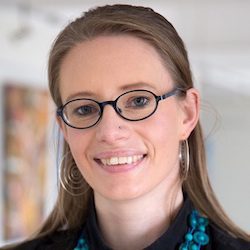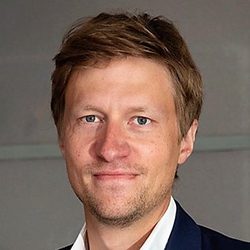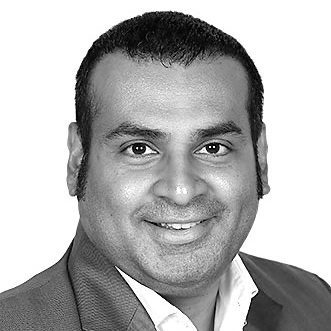Event summary
Boundary spanning
Speakers agreed that we need science to inform policymaking. There are, however, a number of mismatches and misalignments. Science and policymaking are distinct social processes with different professional cultures. This is precisely why so-called ‘boundary spanners’ who can build science–policy networks and collaborations are important. Boundary spanners are more than knowledge translators; they possess a unique skillset to move between communities. The concept of boundary spanning resonances with people active in the field. It offers a way of putting a name to ongoing or aspiring practices. It also provides a community of practice, a vision of agency, and a path to develop a professional career
Professionalising the science policy field
Professionalising the science policy field is important and it is best achieved by learning through concrete projects, .i.e. impact collaboration. Training and capacity development in the science policy field and science diplomacy can often be (perceived as) a high-level and top-down process with a ‘stratospheric’ perspective. It is crucial to translate science policy and science policy to down-to-earth situations. Equally, the concepts gain meaning based on practitioners’ context. Contextualisation, however, needs to follow a process that reverses traditional approaches. It is important to start with peoples’ needs and the messiness of the everyday. Training and capacity development need to respond to the reality of individuals. At the same time, this is not an individual exercise. Rather, practitioners need to connect and be able to share their thoughts.
Challenges to science policy and science policy
First, recent experiences show that there is a huge need to invest in prevention and to avoid being reactive. For example, public and policy budgets often change in reaction to events instead of anticipating them.
Second, practitioners themselves need to be aware that it is not enough to ‘throw evidence at policy’. They need to find the middle ground between complying with political games and ‘bringing in the science’.
Third, a big task for future science policy and science diplomacy is to learn how to anticipate impactful events and crises. In particular, the anticipation and useful uses of new technology can contribute to avoiding unintended consequences. Evolving, regular, and continuous assessments of science and technology advances are needed.
Finally, idealistic notions associated with science diplomacy have been challenged by recent events and emerging scholarly discussion. We have seen how easily geopolitics can dominate the best intentions toward scientific cooperation. Science itself is not apolitical. Yet, the speakers agreed that we should not become disillusioned, even when geopolitics dominates the best intentions.
Recommendations for training and capacity development
- Training and capacity development need to include learning about science diplomacy as a concept and learning to conduct science diplomacy. Programmes offered need to reflect the realities of practitioners.
- Providers should also point to available opportunities, points of entry, and possible career paths.
- Training and capacity development crucially need to reflect the realities of small and developing countries. There are often gaps in capacities in both science and diplomacy. Science diplomacy frameworks are mostly drawn up in the Global North which also houses the ‘power centres’ of science diplomacy. In this context, it is often not advisable to simply copy approaches from developed countries and big science systems. Providers need to be mindful of colonial and imperial legacies.
- Implementation is local. Ways need to be found to foster local expertise and offer context-appropriate information.
- Training and capacity development needs to leverage the rich experience and skills of participants who need to be recognised as experts in their given fields. Immersion programmes, experiential learning, and placement opportunities are important offerings.
Event recording
For more on science diplomacy visit the dedicated science diplomacy page where you can find more information on the topic and our relevant courses, and the publication Science Diplomacy Capacity Development: Reflections on Diplo’s 2021 online course and the road ahead.
Event description
Date: Thursday, 14th July, 13:00 UTC (09:00 EDT | 15:00 CEST | 21:00 CST)
For both diplomats and scientists, science diplomacy has become an important topic and practice. It is discussed as an important contribution to solving some of the most pressing global challenges of our time, such as climate change and the global pandemic. At the same time, science diplomacy is a contested concept and practice. It can mean a number of different, sometimes contradictory things, to various actors.
Beyond these divergences, many actors can greatly benefit from the tools and knowledge science diplomacy has to offer. Broadly speaking, it can help diplomats and scientists to reframe their work in useful ways to enable greater collaboration across boundaries. An example of this is ‘boundary spanning’, i.e. bridging the policy and the scientific spheres to facilitate research and increase policy impact.
If we agree that science diplomacy has the potential to be an extremely useful practice and concept, the question of capacity development in science diplomacy comes into an even sharper focus. We now need to ask:
- How can various actors be enabled to benefit from what science diplomacy has to offer?
- What content and what form should capacity development take?
- How do we ensure that capacity development in science diplomacy has a longer-term impact and allows participants to become active shapers of policies and processes in their chosen fields?
For this discussion, we draw on the joint experiences of our speakers from the Geneva Science and Diplomacy Anticipator (GESDA) and the Geneva Science-Policy Interface (GSPI), and the experience of jointly working on and delivering the first Science Diplomacy Week, as well as Diplo’s Science Diplomacy online course.
Join us on Thursday, 14th July, at 13:00 UTC (09:00 EDT | 15:00 CEST | 21:00 CST).
Speakers
Dr Marga Gual Soler is a science diplomacy expert and founder of SciDipGLOBAL, a purpose-driven advisory, consulting, research, and training firm dedicated to building bridges between science, technology, and global policy. She is a senior advisor to the Geneva Science Diplomacy Anticipator (GESDA), founding member of the EU Science Diplomacy Alliance, and visiting professor at the National Autonomous University of Mexico (UNAM).
Mr Nicolas Seidler is the executive director of the Geneva Science-Policy Interface (GSPI). He leads the GSPI’s mission to enhance scientific engagement with global governance actors within the Geneva ecosystem, with the objective to facilitate the emergence of effective, evidence-informed policies and solutions to complex global problems.
Mr Maxime Stauffer is co-founder and chief executive officer of the Simon Institute for Longterm Governance. His work focuses on the governance of low-probability, high-impact risks from emerging technologies and on the representation of future generations in policy processes. Previously, he was a senior science-policy officer at the Geneva Science-Policy Interface and a research fellow at the Global Studies Institute.
Dr Vid Nukala currently works at EMBO. He previously worked at the Office of Global Affairs (U.S. Department of Health & Human Services, US Embassy), the Wellcome Trust/DBT India Alliance, the Institute for Alternative Futures, and the Indo-U.S. Science & Technology Forum. Nukala is interested in biomedical science, technology and innovation, global health, ethics, policy, diplomacy, and community engagement.
Moderator
Dr Katharina E. Höne (Director of Research, Diplo)
About our WebDebates series
Our WebDebates on the future of diplomacy are live-streamed on the first Tuesday of every month. They are organised by Diplo within the framework of the International Forum on Diplomatic Training (IFDT). Learn more about our WebDebates series.






